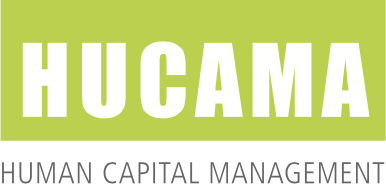Carol Dweck’s comprehensive research in motivation and achievement has shown that mindset is critical to predicting future success. This is because our vision of intelligence and ability decide how we cope with failures, challenges, feedback and the success of others. We know about the belief that suggests that talents and abilities can develop through experience and mentorship. This mindset ensures that individuals always challenge themselves and grow.
Since 2010 Dweck has collaborated with the consulting firm Senn Delaney to determine if organizations can too have a growth or fixed mindset. Can they develop with a hive-like mentality? What are the ramifications of this on the moving parts of an organization?
The research shows that some companies foster a fixed mindset. This type of organizational culture asserts that employees either have it or they don’t. You can’t learn the necessary abilities and don’t have the talent.
You know what that means: other companies foster a different culture. This approach asserts that people can grow and improve with effort, good strategies, and good mentoring.
What do we know about a growth mindset organization?
The research team wanted to see how an organization’s mindset influenced employees. They found that employees in a growth mindset organization are:
- 47% likelier to say that their colleagues are trustworthy
- 34% likelier to feel strong sense of ownership and commitment to the company
- 65% likelier to say that the company supports risk taking and
- 49% likelier to sat that the company fosters innovation
It could be that organizations with fixed mindset invest more on high ability employees. Or maybe they invest less in professional development and ongoing training.
Mindset culture
Most leaders know that agility, innovation, and collaboration are vital to achieving their goals. The findings in the research suggest that culture may be a key factor in determining an organizations’ success.
Since culture is a reflection of leadership, it is critical for leaders to know how they can shift mindset. It comes down to one thing: do you value passion, dedication, and learning? Or, do you prefer talent and ability where those who deliver according to the plan get rewarded?
When praised for intellectual merits, employees tend to assume the expectation is that they have all the answers. When employees become ‘yes-men/women,’ they are less likely to draw on their strengths. They stop being themselves. A Gallup survey of thousands of people globally shows than an affirmative answer to the question: “At work, do you have an opportunity to do what you do best every day?” is a significant predictor of engagement and high operational performance.
When employees feel free to stand apart from the crowd – and have the space to be curious in a learning environment – they tend to find opportunities for improvement. They suggest new ways to leverage opportunities, which brings the organization forward.
Building an organization for the future
Developing a growth mindset asks us to lower the focus on immediate results and instead focus on the process. Focusing on the process encourages employees to try new things and seek support to develop their competencies.
To develop ‘growth mindset employee’s’, leaders should make sure they encourage risk taking. Rewards for risk taking go hand-in-hand with actually taking them. Success is not the determining factor here; challenging yourself is. The focus should be on the process and how the insight can propel the business forward.
Dweck suggests that employees know and believe in these five key messages:
- We don’t expect that you’ve arrived here already formed. We care more that you’re ready to learn
- We expect that you’ll stretch beyond your comfort zone and take reasonable risks
- We value process and we reward process – taking on big but reasonable challenges
- We reward tenacity and grit
- We reward teamwork
When organizations reward risk-taking and welcome the risk of failure, they should put considerable resources into mentoring and support. This ensures that they are benefitting from their employees. We talked about physiological manifestations to a mindset in a previous article.
If we continue to structure projects so that no resources are available for experimentation there is a chance that employees will get stuck with the idea that intelligence and ability are static.

Our focus is to create the optimal relationship between individual fulfillment of a good and engaged work life and fitting that with the global goal of the organization. We design both the technology and the processes that help organisations to manage competencies.


Trackbacks/Pingbacks